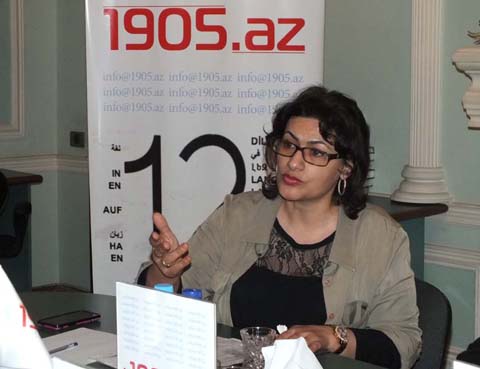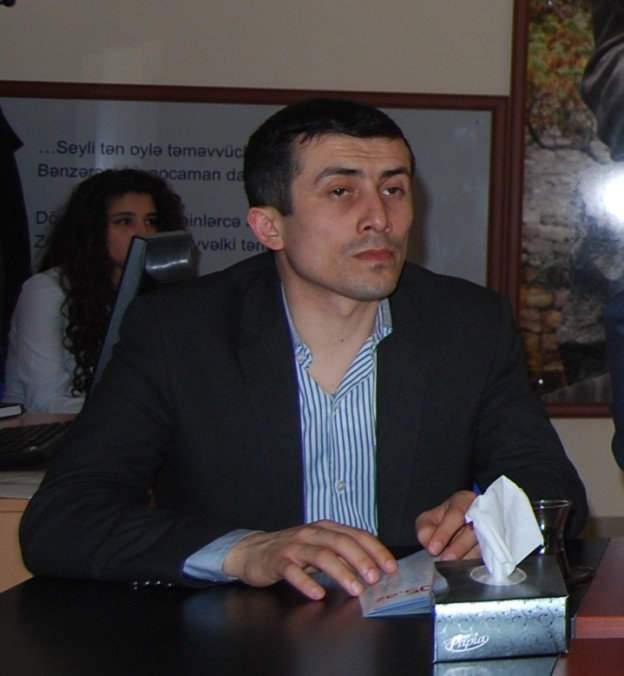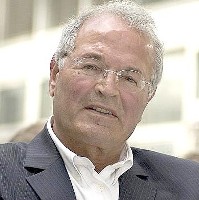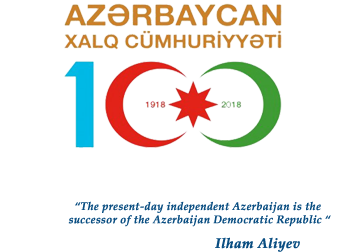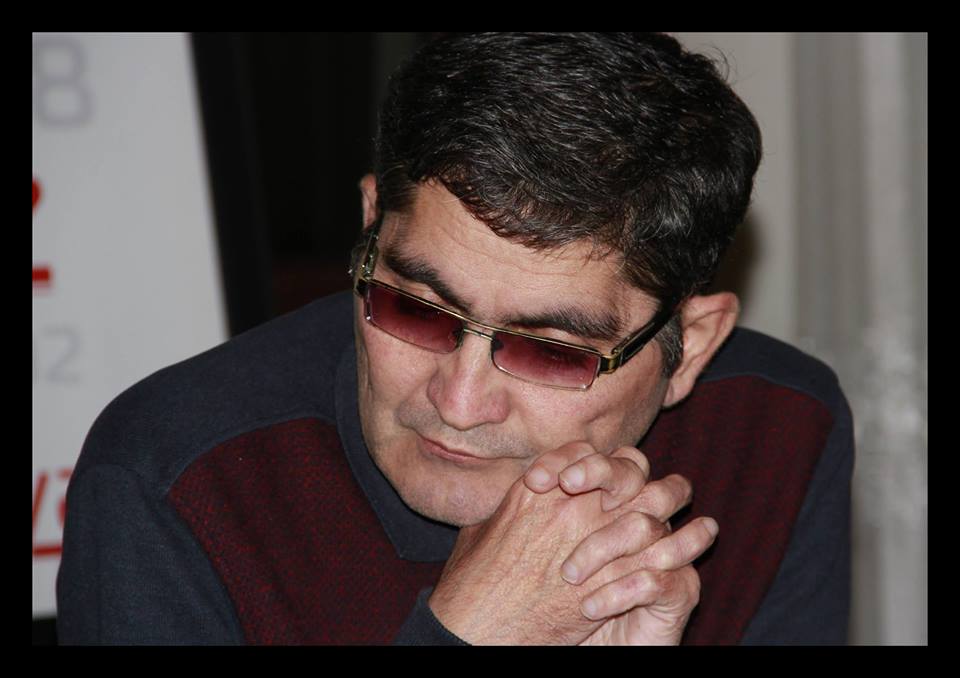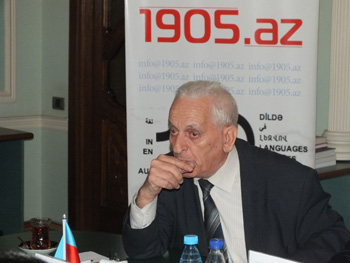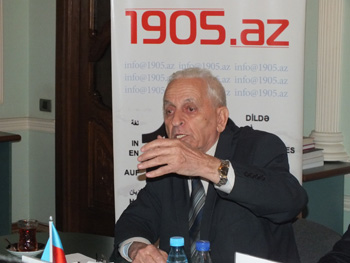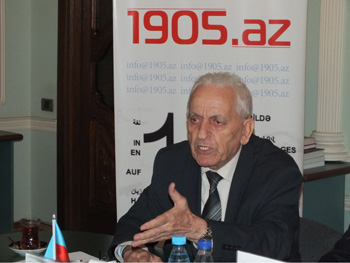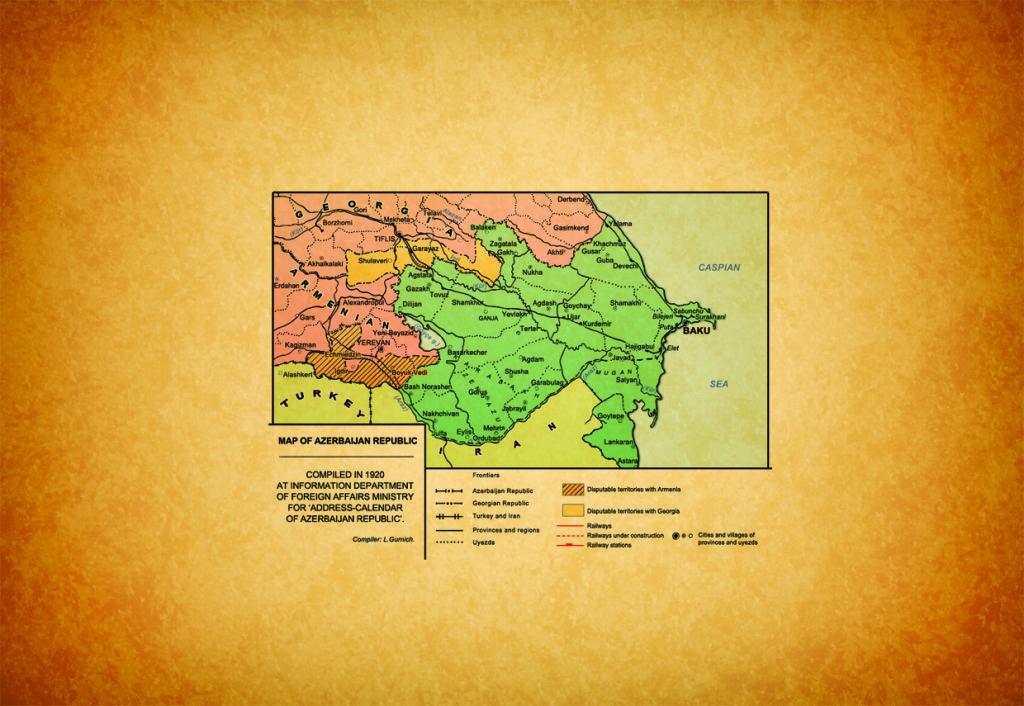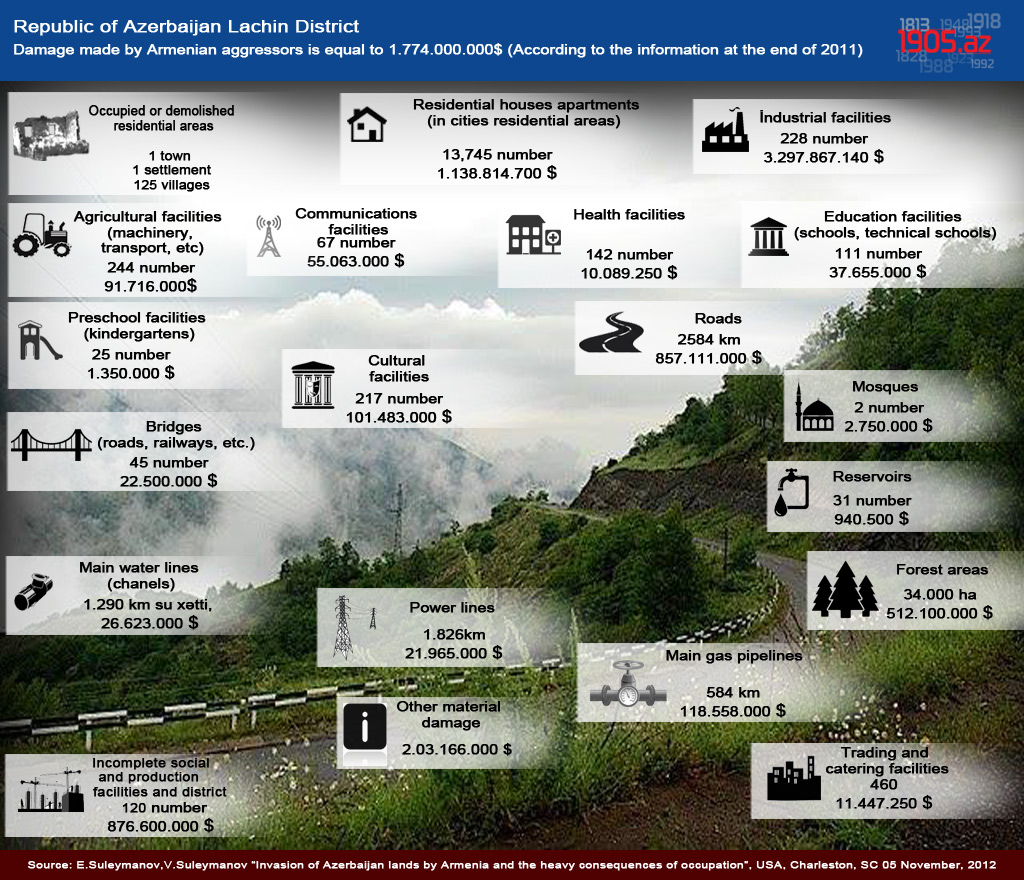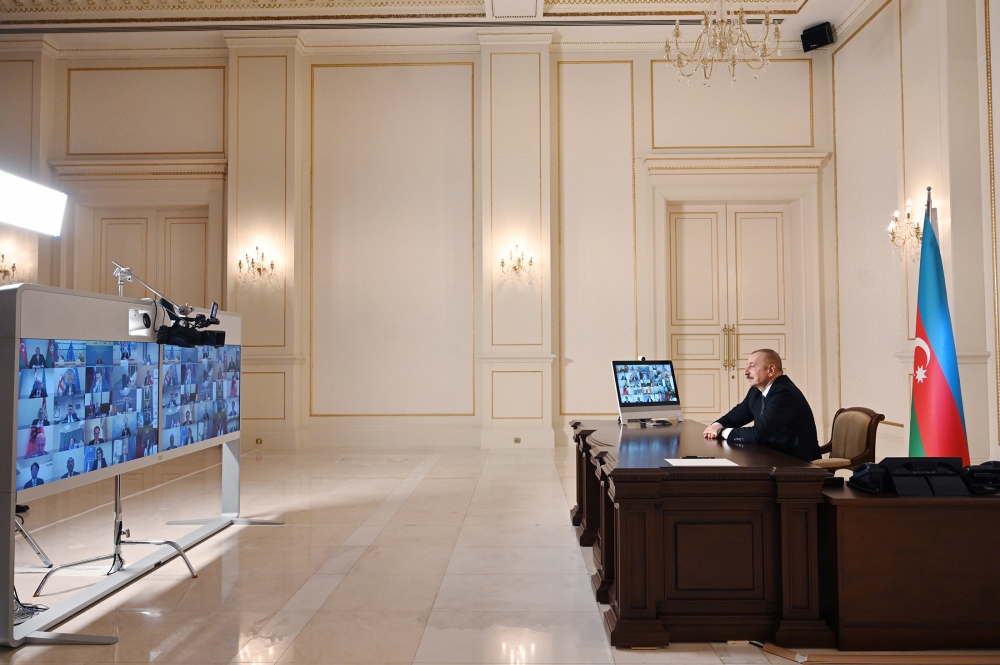
The 7th Ministerial Meeting of the Southern Gas Corridor Advisory Council has been held in the format of a video conference.
President of the Republic of Azerbaijan Ilham Aliyev made a speech at the video meeting.
Speech of the President of the Republic of Azerbaijan Ilham Aliyev
Dear Commissioner Simson,
Dear Commissioner Varhelyi,
Ladies and gentlemen,
Dear friends.
The 7th Ministerial Meeting of the Southern Gas Corridor Advisory Council is being held via video conference format. This is a new reality as a result of the pandemic but nevertheless I am sure that the result of our joint activity will be very tangible as it always has been. I remember the first meeting of the Advisory Council, when we just started our joint work, and today looking back we see the great achievements. By the way, every year gathering in Baku, we made a review of what has been done and planned our future steps. I am glad that the number of countries’ participants at today’s meeting is more than before. We have now 18 countries, 19 companies and five leading financial institutions and we work as one team. And I think this is the main reason of our success. Of course, first of all, I would like to congratulate all of us with respect to the completion of the construction of the Southern Gas Corridor. The last day of the last year was remarkable. The completion of TAP, the last segment of the Southern Gas Corridor is a historical achievement. And I am sure that our joint activity will continue. Because we have more plans, we have more ideas and definitely today at the meeting these plans and ideas will be discussed. I would like to express gratitude to all our partners, to governments, to governments of countries involved in the construction of the mega project, governments of Georgia, Turkey, Bulgaria, Greece, Albania, Italy. I would like to express gratitude to European Commission, because the European Commission and Azerbaijan signed a Joint Declaration on Southern Gas Corridor ten years ago in Baku and that was actually the starting point for our activity. Throughout all these ten years we have been very actively cooperating with the European Commission and the European Commission and Azerbaijan are the co-chairs of the Advisory Council. I would like to express gratitude to the governments of the United States and the United Kingdom, the governments of our two partners always supported all our endeavors and provided very strong support during the implementation of different mega projects which Azerbaijan with its neighbors and partners successfully completed before. Of course, the project wouldn’t have been possible to implement without strong commitment from companies and we have really very big team of companies united with one idea how to make possible these tremendous energy project. And I would like to particularly underline the special importance of strategic cooperation between Azerbaijan and BP. BP is our strategic partner, the company which operates in Azerbaijan already for 27 years, and with many more decades to come. BP is a partner to all major oil and gas projects including transportation projects in Azerbaijan. I would like to express gratitude to leading international financial institutions, World Bank, EBRD, Asian Development Bank, European Investment Bank and Asian Infrastructure and Investment Bank. These actually five leading international financial institutions, all of them participated and made a great contribution to the implementation of the project. So, this once again, demonstrates that this team work produced good results and actually we achieved tremendous progress. The Southern Gas Corridor project really is a project of energy security, of energy diversification. Energy security today is a matter of national security of all the countries and energy diversification also is important for consumers as well as for producers. Therefore, I think we have a very unique format of cooperation, very properly measured balance of interests, where interests of producer Azerbaijan, transitors, consumers coincide. And these make possible to implement these projects which for some seemed to be not very realistic. When you look at the Southern Gas Corridor project it’s really unique by many parameters for instance, the length 3500 km. It unites seven countries and without close cooperation between these countries, this project wouldn’t have been possible to implement. It crosses very difficult terrain like 2100 m high mountains, and more than 100 km of the pipeline goes under the Adriatic Sea. The Southern Gas Corridor is a project with full compliance with the highest ecological norms. And that was one of the major pre-condition while we were planning and implementing this project. The cost of the project, first initially it was planned to be 44.6 billion US dollars, but due to efficiency in management and proper planning the cost was reduced to 33 billion US dollars. This is also a remarkable achievement. Usually the construction project’s cost does not decrease. It usually increases during the time of implementation. And also, I would like to say that Azerbaijan made a substantial commitment at the amount of 10 billion US dollars and we participate in all four segments of the Southern Gas Corridor, including Shah Deniz, South Caucasus pipeline, TANAP and TAP. So, all this is a reflection of our team work. I would like to once again underline the importance of the joint declaration which the then President of the European Commission Mr. Barroso and myself signed in Baku ten years ago. Joint declaration on the Southern Gas Corridor really was a remarkable event. But, that declaration was signed based on already achieved progress, because Azerbaijan started to work actively with leading international energy companies, back in 1994 when Contract of the Century was signed. That actually was the first very important step in implementation of our energy strategy. Just to remind our partners about major milestones, I would like to say that 1994 can be really considered as a starting point of all our mega projects. In 1996, Azerbaijan and consortium of international energy companies signed an agreement on Shah Deniz field which today is so far the only resource based for the Southern Gas Corridor. But I am sure that there will be more gas from other fields. In 1997, the first oil from the Caspian Sea produced by international companies became a reality and actually Azerbaijan was the first country to invite international energy companies to operate in the Caspian Sea. Then in 1999, we inaugurated the oil pipeline from Baku to Georgian Sea port of Supsa which was important from point of view of future investments, because before that we did not have access to the world markets. Azerbaijan is a landlocked country. Therefore, we needed pipelines of 1999 which actually made big difference. Then we started to plan the construction of the major oil pipeline which was inaugurated in 2006, Baku-Tbilisi-Ceyhan. That was a connection of the Caspian Sea with the Mediterranean Sea. So, already we started to diversify the roots of supply. And then, in 2007, we completed the gas pipeline from Azerbaijan to Georgia and Turkey. That was also for the first time since independence, Azerbaijan started to supply natural gas to the neighboring countries. And of course, 2012, just a year after the declaration signed with the European Union, we signed an agreement on construction of TANAP between Azerbaijan and Turkey. And that was a really very important milestone in implementation of the Southern Gas Corridor project. And after that of course, implementation of TANAP – 2018 and TAP – 2020. So, these are the milestones and today looking back we see that without all those achievements today’s ceremony of congratulations, when we congratulate each other, would not have been possible. But we need to look to the future. We made great achievements but I am sure today participants of the Council will discuss our future plans.
I think, as far as Azerbaijan is concerned, we will continue to develop our energy resources. We have very promising prospects from the fields which are now in the process of exploration, and production. Particularly big field containing 400 billion cubic meters of gas is a field named “Babak”. Absheron gas condensate field, which I hope production will start next year, contains minimum 350 billion cubic meters of natural gas and “Umid” field at least 200 billion cubic meters of natural gas. So, these are the fields with proven reserves which will contribute more to the production of natural gas from the Azerbaijani sector of the Caspian Sea, and some other projects which are now in the phase of exploration, we hope to see new discoveries in the coming years. Therefore, that will all be helpful in order to increase the output through our diversified chain of the oil and gas pipelines. As far as our joint plans, I am sure today you will discuss the issues related to Ionian Adriatic Pipeline. Of course, the completion of TAP enables the implementation of the Ionian Adriatic Pipeline. We already signed memoranda of understanding with the countries of the Western Balkans. The Ionian Adriatic Pipeline when implemented will allow us to diversify our supply roots and at the same time, will provide additional opportunities for countries of the Western Balkans. When we talk about diversification, our project provides diversification not only of roots but also diversification of sources. And this is very important. This is a real diversification. So, gas from Azerbaijan is a new source for Europe and a reliable source and a long-lasting source. Because our proven gas reserves were considered to be at the level of 2.6 trillion cubic meters but now the new information shows that it will be much more. And if we add here the great potential of project which is called deep gas from ACG, then the full picture of our potential will be more visible. Another important event which I would like to inform you about is the signing of Memorandum of Understanding between Azerbaijan and Turkmenistan on the field called “Dostlug”. This field was discovered by Azerbaijani geologists and oil men during the times of the Soviet Union. This is a discovered field. But it took us a lot of time in order to agree on the basic principles of exploration of this field. And we called it “Dostlug” which means in English friendship. So, this is a very remarkable event in the area of Caspian, because this January this memorandum was signed and I am sure we will soon agree on all the terms and sign an agreement. That will be also very helpful for future energy cooperation in the Caspian Sea and beyond. And of course, I would like to say that Azerbaijan has already become a reliable transitor of energy resources from eastern shores of the Caspian Sea. For many years, we provide important transportation roots for our partners on the eastern part of the Caspian, through Baku-Tbilisi-Ceyhan pipelines, through our railroad system. Azerbaijan demonstrated itself as a reliable transitor. One more point I would like to bring to your attention, is our plans with respect to renewable sources of energy. We are now in the active phase of cooperation with leading energy companies of the world. With two of them we already signed necessary documents for construction of two, one solar and one wind power stations of the total capacity of 440 megawatts. These are projects which will be implemented 100 percent by foreign investors. Azerbaijan’s investment climate is very positive. World Bank ranks Azerbaijan among leading 30 countries with respect to the doing business opportunities. The attraction of investments in renewable energy is in line with our strategy of renewable sources of energy and in line with our potential. At the same time, after the liberation of the occupied territories we know that there is a great discovery on the liberated territories for solar and wind energy production, as well as hydro-electric generation. Therefore, I would like to invite companies from your countries to be our partners. I already officially announced the liberated territories as the territories which will be supplied with green energy. We are already working on the master plan using a great potential of water, sun and wind. We will, I am sure, implement this project, as well as another project which is called smart city development. For all liberated territories this project is now already in the pipeline. Taking into account the devastations and destructions which Armenia committed on the occupied territories which we liberated and everything is destroyed, of course, it’s a big challenge. But we are committed to do it, to do it in a short period of time and to return our former refuges to the native lands and demonstrate the capacity of the country, its commitment and its vision for the future. I think that having big energy potential like oil and gas being an exporter of crude oil, oil products, natural gas, and also electric energy Azerbaijan must demonstrate responsibility and actively invest in the green energy. That’s what we are doing, and these are our plans, I am sure they will be implemented. I just wanted to inform our partners and friends that these opportunities also exist. Of course, commemorating the completion of the Southern Gas Corridor, as I said before, we need to look to the future to implement our new plans, new ideas and hopefully after the pandemic is over we will be able to meet again in Baku, because Baku was traditionally the place of our Advisory Council. Therefore, I’d like to use this opportunity also to invite you to come to Baku next year to continue our joint work. Thank you very much for your attention.
X X X
European Union Commissioner for Energy Kadri Simson, EU Commissioner for Neighbourhood Policy and Enlargement Negotiations Oliver Varhelyi and Azerbaijan’s Minister of Energy Parviz Shahbazov made opening remarks at the meeting.
Following the submission of a report by the consortium members on the completion of the Southern Gas Corridor, the ministers and heads of delegations made speeches.
The meeting is attended by ministers and other high-level representatives from 18 countries, including Azerbaijan. The event also brought together heads of 5 leading international financial institutions and 18 major companies engaged in the project.

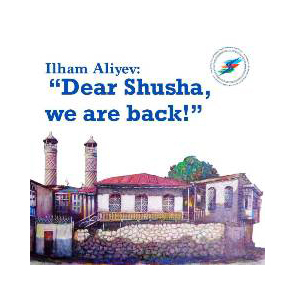
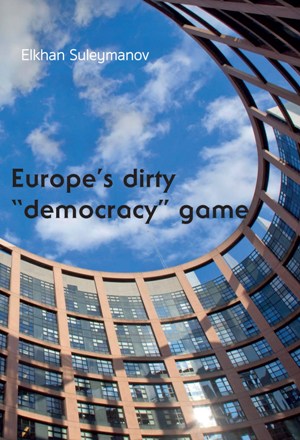

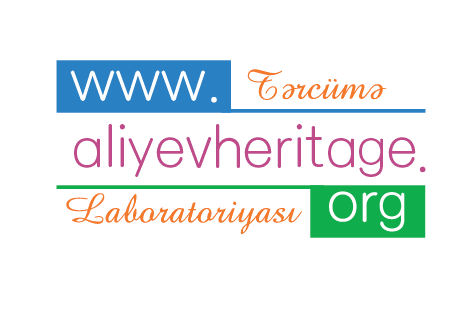




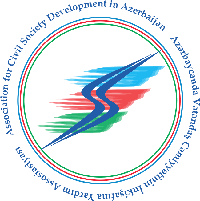
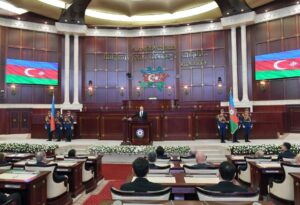 Inauguration ceremony of President of Azerbaijan Ilham Aliyev was held
Inauguration ceremony of President of Azerbaijan Ilham Aliyev was held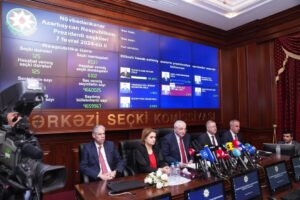 Ilham Aliyev wins presidential election with 92.05 percent of votes VIDEO
Ilham Aliyev wins presidential election with 92.05 percent of votes VIDEO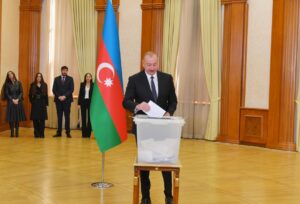 President Ilham Aliyev, First Lady Mehriban Aliyeva and family members voted in Khankendi VIDEO
President Ilham Aliyev, First Lady Mehriban Aliyeva and family members voted in Khankendi VIDEO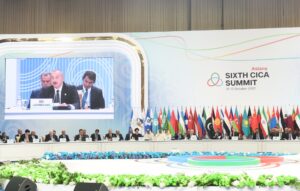 Plenary session of 6th Summit of Conference on Interaction and Confidence Building Measures in Asia gets underway in Astana. President Ilham Aliyev attends the plenary session VIDEO
Plenary session of 6th Summit of Conference on Interaction and Confidence Building Measures in Asia gets underway in Astana. President Ilham Aliyev attends the plenary session VIDEO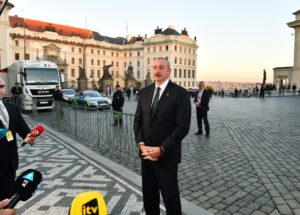 President Ilham Aliyev was interviewed by Azerbaijani TV channels in Prague VIDEO
President Ilham Aliyev was interviewed by Azerbaijani TV channels in Prague VIDEO



